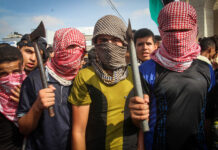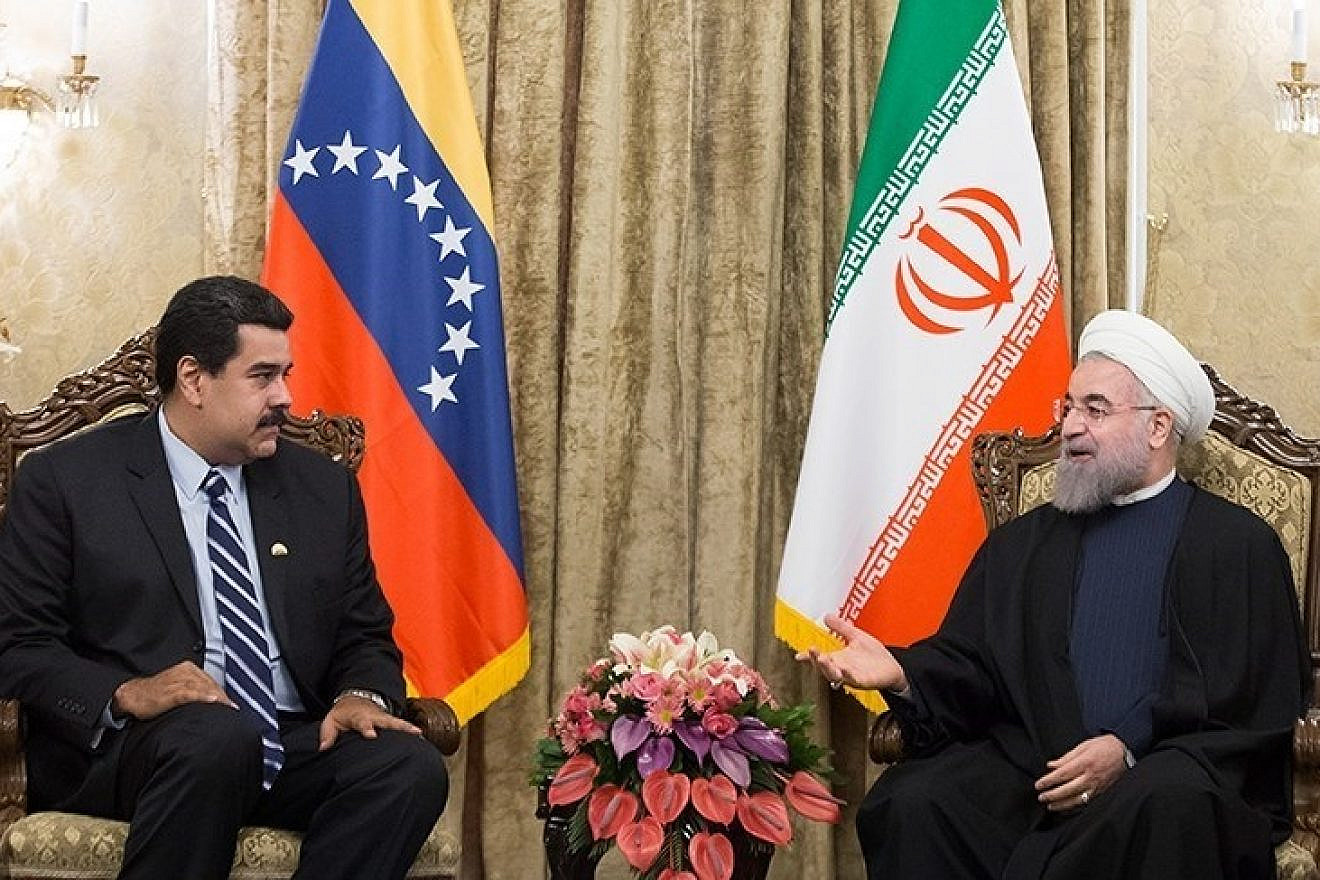The Israeli military response against Hamas in Gaza following the Oct. 7 massacre and the current campaign in Lebanon against Hezbollah has sparked criticism, even ire, on the part of a significant part of the international community. This phenomenon has not skipped several Latin American governments, especially those belonging to the “Bolivarian Alliance for the Americas” (ALBA), which includes Venezuela, Nicaragua, Cuba and Bolivia.
Shortly after Israel began striking back at Hamas, La Paz cut diplomatic ties with Israel and presented a request to the prosecutor of the International Criminal Court to “investigate the situation in Palestine” while the governments of Colombia and Chile recalled their ambassadors on the same day and later backed South Africa’s legal action against Israel before the ICC, together with Brazil and Mexico.
Just this month, Nicaragua also announced plans to cut diplomatic ties with Israel. The move is essentially symbolic since relations between Israel and the Central American country are nonexistent. It is worth recalling that in June 2023, Daniel Ortega, president of Nicaragua, welcomed former Iranian President Ibrahim Raisi to Managua.
Nicaragua has broken relations with Israel twice before—once in 2010 under Ortega and previously in 1982 under the Sandinista revolutionary regime.
On the contrary, Argentina’s newly elected president, Javier Milei, as well as El Salvador’s Nayib Bukele, confirmed their support for Israel, with the latter comparing Hamas’s violence to the one perpetrated by the criminal group known as the Maras and praising the liberation of the Palestinians from Hamas’s clutches.
Paraguay is also backing Israel and planning the relocation of its embassy to Jerusalem. In 2019, Paraguay added Hamas and Hezbollah to its terrorist blacklist, along with ISIS and Al-Qaeda.
This general situation generates concern considering that Latin America has been a hub for terror activity for the last four decades, with its long history of terrorist attacks by local groups, including the FARC and ELN guerrillas in Colombia and the Shining Path in Peru, as well as the longtime presence of Hezbollah in the region, as explained by Jennifer Teale of the Israel Defense and Security Forum.
Hezbollah is not the only terrorist organization that found a safe harbor in Latin America. Since the 1990s, several other groups, such as the Egyptian Islamic Group, Palestinian Islamic Jihad, Al-Qaeda, and more recently, the Islamic State (ISIS) have all found footholds in Latin America.
The reason why Islamist terrorism is widely present in Latin America is due to several reasons, including the possibility of exploiting illicit trafficking networks for drugs and money laundering; porous borders; inadequate law enforcement; and lack of proper counter-terror laws.
There is no doubt that the undisputed Islamist organization that dominates Latin America is Hezbollah, which has been present and operational in the continent since the early 1980s. It has been relying mostly on a vast networking operation implemented by Iran after the 1979 Islamic Revolution. Hezbollah has also been widely involved in drug trafficking and money-laundering activities, especially from its base in the “Triple Frontier,” the intersection point where the borders of Argentina, Brazil and Paraguay meet.
Iran and Hezbollah’s current spearhead in Latin America is Venezuela due to the strong links between the regime of President Nicolás Maduro and Tehran. Iran has invested heavily in Venezuelan oil refineries and assisted Maduro’s regime in reviving their struggling oil industry. Maduro’s Venezuela has practically aligned with Iran’s radical axis, ramping up its vile rhetoric against Israel and the West, accusing Israel of “genocide” on the United Nations stage and, through Maduro’s open antisemitism, accusing “international Zionism” of fomenting anti-government protests in his country.
Hezbollah managed to root itself on Venezuelan soil and establish networks throughout Latin America, taking advantage of the sizable Lebanese community there. A similar situation occurred in Brazil, another country with a vast Lebanese presence. It is not by coincidence that the Brazilian security services unfoiled an attack last November planned by Hezbollah against the country’s Jewish community.
In 2021, Colombia’s security apparatus thwarted an Iranian plot to assassinate two Israeli businessmen in the country and expelled two Hezbollah operatives.
In March of this year, the Peruvian police arrested an Iranian and a Peruvian national who were planning an attack on an Israeli person at the Asia-Pacific Economic Cooperation (APEC), which is scheduled to be held in November in the Andean country.
In addition, on Aug. 16, Argentina’s Federal Police thwarted an Islamist terror plot reportedly linked to ISIS and the Taliban to murder Jews in Mendoza, the second such plot uncovered in Argentina this year.
While these plots were exposed in time to be thwarted, they are proof that Jewish communities and Israelis in Latin America remain a primary target of both Sunni and Shia terrorist organizations that, until recently, have been able to operate with impunity.
Another aspect that must not be underestimated is the flourishing Israeli tourism industry in Latin America. With post-military Israeli backpackers traveling to these areas—often to remote parts and for long periods of time—they could become a target of terrorists.
Given the current situation in Lebanon, with Hezbollah being brought to its knees by the Israeli offensive and with Iran appearing hesitant to actively enter the field in support of its Lebanese proxy, it cannot be ruled out that the Iranian regime and Hezbollah may try to strike where they still have operational networks and attempt to target Jewish communities and Israelis abroad.
In September 2023, Mossad chief David Barnea announced that the Israeli intelligence organization has managed to thwart 27 attempted terrorist attacks by Iran in one year alone, including some in Latin America. The normally quiet continent could be one of the most suitable areas, considering the huge gaps in the security sector both on the legislative level and in law enforcement.
One must not forget the difficulty of the authorities in controlling vast areas of the “Selva” rainforest region in Peru, the highland Andes “Sierra” region, and the long, often impervious borders, such as the one between Colombia and Venezuela, whose neighboring areas have become strongholds for the FARC and ELN terror groups. Other problematic areas are the “Vream”—Valley of the Apurimac, Ene and Mantaro Rivers in Peru, where the Sendero Luminoso guerrilla group is based—and the borders connecting Brazil with Bolivia, Peru and Paraguay, which are not difficult to cross and serve as major transit points for drug traffickers, often linked to the Iranian terror network.
Extreme caution is therefore recommended when traveling throughout Latin America—not just in cities but also in the more remote natural areas. It is also advised to avoid countries hostile to Israelis and Jews.

























